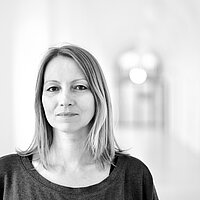
I have been using collective-memory-work and an adapted version called mind scripting in teaching and research in the field of science and technology studies for more than 15 years. My main research interest is on the question of how difference and social inequality co-emerge with information infrastructures and sociotechnical systems. I use ethnography and mind scripting to trace the implicit normativity of computing practices with a focus on how these practices are entrenched in societal power relations.
My background is in political science and social and economic sciences and I am senior scientist at Austrian Academy of Sciences. For more, see here.
Memories of safeguarding the welfare state: affective investments into the algorithmic detection of welfare fraud
Years after welfare states in Europe adopted algorithmic systems to detect social fraud, the state has full transparency over the living conditions of its citizens and citizens’ councils have an actual say in shaping the values and principles on which welfare and redistribution are based ― my Postcard from the Future paints a landscape of ideological confusion and introduces us to the world of automated and datafied welfare.
Since the 1980ies, techniques of new public management have promoted ideas of a lean state to reduce costs through more efficient administrative practices. In the wake of austerity measures, promises of evidence-based decision-making were touted as a means of increasing the effectiveness of social policies. Currently, we are witnessing a new wave of private sector dynamics entering the public sector in the shape of automated decision-making systems (ADM). Alongside profiling of the unemployed, the introduction of algorithmic welfare fraud detection has become a widespread practice across Europe.
In this workshop, I will present a Collective Memory Work (CMW) with employees of a social fraud competence centre and case workers using a system to detect fraud. In a one-and-half-day workshop, sixteen participants engaged in a collective deconstruction of their memories of using the system after a 2015 law requiring public agencies to detect welfare fraud. The deconstruction was guided by my colleague Astrid Mager and me and followed an adaptation of CMW that analytically focuses on ideologies and normativities in computational practices and how these reconfigure capitalist society-technology relations (Allhutter 2021).
The collective deconstruction showed that participants mobilised high values of the welfare state to discuss the workings of the system, while the actual practices they described connect to a managerialism informed by algorithmic practices of surveillance, profiling and targeting. After presenting the findings, I suggest discussing the broader implications of efforts to protect the welfare state under growing austerity and social rights restrictions.
Allhutter. D. (2021) Memory Traces in Society-Technology Relations. How to Produce Cracks in Infrastructural Power. In R. Hamm (Ed.), Reader Collective Memory-Work (pp. 155-181). Sligo, Ireland: BeltraBooks.